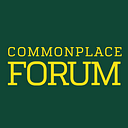Introducing the Listeners Podcast
Journalism faces a profound crisis. The news and information environment has become fragmented and polarized; meanwhile, the public’s trust in the news has plummeted. In this time of political strife and ominous international tensions, the need for audience engagement and quality journalism has never been greater. This moment also presents a vital opportunity to repair the relationship between journalism and the communities it serves, and between the news and democracy.
Key to restoring that relationship is finding innovative ways to truly engage with the public. One way to do that is to listen more deeply. Journalism’s crisis of public trust stems in part from the public’s sense that they have not been listened to — that their stories and struggles are not reflected in the daily news.
Earlier this year, Molly de Aguiar of the News Integrity Initiative claimed that 2018 was The Year of Listening:
“With the smoke bomb of 2017 now clearing, newsrooms can see that better listening and engagement are no longer “nice to have,” but are absolutely critical priorities for making good on their democratic obligations, as well as for their financial well-being.”
Beyond re-imagining the future of journalism and a healthy information ecosystem, I fear that we’re losing our natural abilities for healthy discussion and deliberation. And it’s not only because digital screens are vying for our attention, but also because we’re grappling with living in a system that thrives on dividing rather than uniting, building walls instead of bridges.
So, we’re excited to announce a brand-new podcast series called Listeners, a show about the craft and power of listening. The show reflects the mission of the organization I help run: The Agora Journalism Center, the gathering place for innovation in communication and civic engagement, at University of Oregon’s School of Journalism & Communication. At the center, we aim to emulate a place where people can come together, present new information, discuss and deliberate, and seek out solutions to communal ills. There was such a place in ancient Greece, and it was called the Agora.
This podcast also aligns well with Gather’s mission to “make journalism more responsive to the public’s needs and more inclusive of the public’s voices and diversity, by helping journalists, educators, and students who share these values find each other, find resources and best practices, and find support and mentorship.”
This interview-style show will share insights and lessons from researchers, thought leaders and practitioners whose work involves listening: from scholars and journalists to social workers, mediators, religious leaders, and others whose professional work and contributions to their communities depend upon the power of listening, or the ability to hear and translate the voices of many members of the community.
The team here at UO have been hard at work on our first season, where we’ll talk with a variety of people including:
- Gather’s very own community manager, Joy Mayer;
- A gay man who struggled being raised as a Jehovah’s Witness and finally found peace once he listened to his true self, with support from others who care for him;
- One of Finding Common Ground’s sub-grantees, jesikah maria ross from Capital Public Radio, talks about Story Circle, a curated storytelling event with citizens who share stories about the issues affecting their communities;
- A father and a son attempting to find common ground despite their widely different political views;
- And a pastor whose work requires deep listening to his very diverse congregation.
Speaking of the team, Listeners podcast series would not be possible without multimedia journalism master’s students Jack Fisher and Patty Torchia, who are producing the series along with Alex Ward, a podcast consultant and graduate of UO’s international studies program.
As with any new initiative, I see this as a big experiment. We aim to fill a need in the busy ecosystem of podcasts by raising the importance of listening to each other every day. And we need your help. You can subscribe to the show anywhere you find your other favorite podcasts. If you use Apple podcasts, please rate and leave a comment, as it helps to raise the show’s visibility. Visit our website at listenerspodcast.com, email us at listenerspodcast@uoregon.edu and tell us who else we should listen to. In keeping with the ethos of Gather, we want to hear from you to help shape the future of this show.
Thank you for listening.
Andrew DeVigal is an endowed chair in journalism innovation and civic engagement at the University of Oregon School of Journalism & Communication’s Agora Journalism Center, the gathering place for innovation in communication and civic engagement. DeVigal is also the executive director of Gather.

